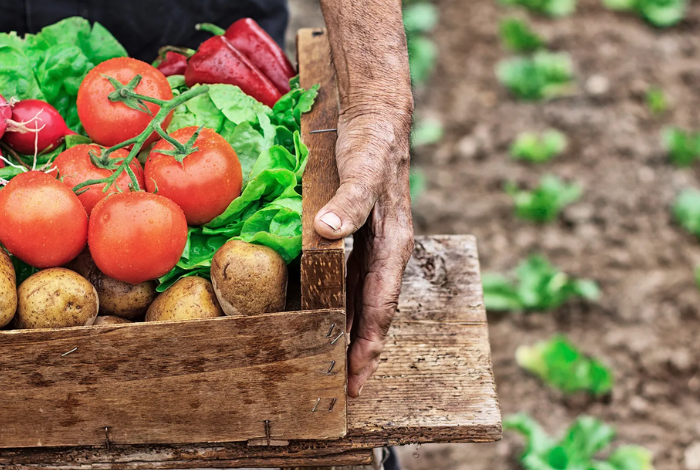How to Grow an Organic Garden

Growing your organic garden is a great way to ensure that you and your family have access to the freshest, healthiest produce. In addition to the health benefits, growing your organic garden can also be an enjoyable and rewarding experience. It is important to understand the basics of organic gardening before getting started. In this blog, we will explore the steps to successfully grow an organic garden, including the benefits of growing an organic garden, planning your organic garden, selecting the appropriate area, choosing organic seeds or plants, preparing the soil, planting and caring for your garden, controlling weeds, pests, and diseases organically, and harvesting your organic crops.
Benefits of Growing an Organic Garden
Organic gardening is a great way to ensure that the food you eat is healthy and free from harmful pesticides and chemicals. Eating organic produce can reduce the risk of consuming harmful chemicals, support a healthier environment, reduce pollution, and improve the quality of the soil. Additionally, organic gardening can help reduce stress and improve mental health by providing an opportunity to be in nature, practice mindfulness, and enjoy the outdoors.
Planning Your Organic Garden
When planning your organic garden, it is important to consider the size, location, and type of plants you will grow. You will need to choose a space that receives at least six hours of direct sunlight, has good drainage, and is away from sources of air pollution. Additionally, you need to consider the resources available to you and the amount of time and effort you can devote to the garden.
Choosing the Appropriate Area
When selecting a space for your organic garden, it is important to consider how much sunlight the space receives, the size of the area, and the soil quality. If you are limited in space, you can opt for container gardening or vertical gardening. Additionally, you should consider the amount of water the garden will need, the type of plants you want to grow, and the amount of traffic your garden will receive.
Selecting Organic Seeds or Plants
When selecting organic seeds or plants, it is important to purchase certified organic seeds or plants. Additionally, you should select plants that are suited to the climate and soil of your space. When selecting seeds, consider the plant’s size, flavor, and the amount of time and effort required to care for the plant.
Preparing the Soil
Once you have selected the appropriate area, it is important to prepare the soil for planting. You should test the soil’s pH levels and fertility, and adjust accordingly. Additionally, adding organic matter, such as compost, to the soil will improve its structure and fertility.
Planting and Caring for Your Organic Garden
When planting your organic garden, it is important to plant the seeds or plants at the correct depth and spacing. Additionally, you should ensure that the plants are adequately watered and receive adequate sunlight. Additionally, you should regularly monitor the plants for signs of disease and pests, and take steps to remedy any issues.
Controlling Weeds, Pests, and Diseases Organically
When dealing with weeds, pests, and diseases, it is important to use organic methods. This includes hand-weeding, mulching, using organic pesticides, and introducing beneficial insects. Additionally, crop rotation and using companion planting can help to reduce the risk of pests and diseases.
Harvesting Your Organic Crops
Once your organic crops have grown to maturity, it is time to harvest. You should harvest at the appropriate time, as harvesting too early or too late can affect the quality and taste of the produce. Additionally, you should use the appropriate harvesting tools and techniques to ensure that the product is not damaged.
Conclusion
Organic gardening is a great way to ensure that you and your family have access to the freshest, healthiest produce. The process of organic gardening may seem intimidating at first, but with the proper planning, preparation, and care, you can successfully grow an organic garden. Additionally, organic gardening can offer numerous health and environmental benefits, as well as provide an enjoyable and rewarding experience.




